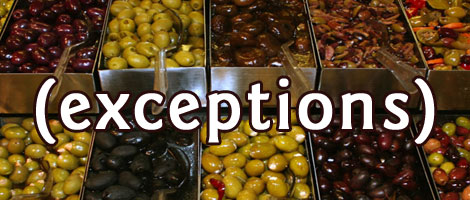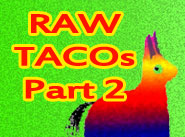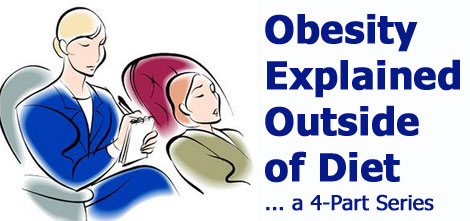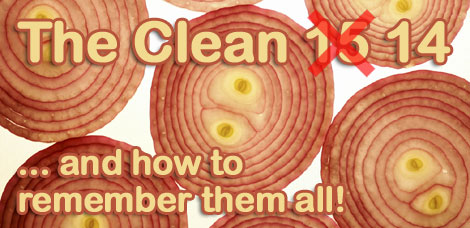
Jim here... We know a lot of people who exist on a high-raw lifestyle, and many others who aspire to eat a 100% live food diet. I don't believe there is an exact threshold that makes one a "raw foodist." That term is more or less just a general description you might use about yourself or anyone. Aside from the labels, though... If you want to talk about recommended levels of raw intake for optimal health, quite a number of web sites and health books seem to recommend shooting for around 80% of one's intake to be raw, with a careful eye on the other 20%. We certainly agree with that as a good starting goal, adjusting upward or downward as you gain feedback from your body.
Of course, most of the people who do follow a high-raw diet are usually by definition highly health-conscious about any non-raw foods they eat. I've yet to meet, for example, a raw foodist who occasionally eats Burger King Double-Whoppers ?(although, I'm sure that seemingly odd combination must exist somewhere).

Yesterday, we covered the concept of "unsubscribing" from unhealthy practices. This was of course based on the common Internet practice of subscribing and unsubscribing to various things like newsletters and email lists. I receive quite a few of these each day, many raw foods ones and many non-raw ones. Among the non-raw, one that has been interesting to me lately is called the Art of Non-Conformity, penned by Chris Guillebeau. Basically, Chris' site chronicles his adventures in reaching his personal goal -- to travel to every country in the world! Along the way, he writes about all sorts of out-of-the-box things, as the blog name implies.
Today, he posted something that is remarkably insightful and applicable to our subject matter here, even though his context was completely different. The entry, entitled simply "Before and After," discusses the drinking water problems in much of Africa, focusing for the moment on Liberia. Atop the piece (the "before" picture) is a muddy water hole, the only source of drinking water for one village. The next picture (the "after" shot) shows a different, very happy village obtaining fresh, clean water from a newly installed well. Chris closes his article with the following quote:

An online friend of mine, Kevin Gianni (see previous blog entry introducing him), has been producing a terrific series of videos and blog posts. At the end of each post, he asks questions of his readers. In his recent post, he asked his readers:
What struggles have you been through

Every Tuesday we introduce an individual or business that may be of interest to our readers. Our introductions vary from those that will help support your body, mind, spirit, or emotions. This Tuesday we are pleased to introduce an individual who brings a holistic view to her work and nourishes your body, mind, spirit, and emotions on all levels.
Take the Time to Meet

 Continuing with our Taco Week, here's a quick and easy (and delicious) salsa recipe. You can really have a lot of fun with salsa, and can get highly experimental if you like. Almost anything tastes great in salsa. This one is fairly basic, so feel free to spruce it up with some of your favorite ingredients. Let us know in the comments section some of your favorite variations so you may inspire others!
Continuing with our Taco Week, here's a quick and easy (and delicious) salsa recipe. You can really have a lot of fun with salsa, and can get highly experimental if you like. Almost anything tastes great in salsa. This one is fairly basic, so feel free to spruce it up with some of your favorite ingredients. Let us know in the comments section some of your favorite variations so you may inspire others!
Continuing with our week of ways to keep a sharp mind, let's focus on the one widely accepted indicator for dementia or alzheimer's: heart disease. If one wants to dramatically reduce the chances of brain degredation, the first step to take is keeping the heart healthy.
The key advice most health specialists agree on when it comes to a healthy heart is the reduction (ideally eliminatain) of unhealthy fats in the diet. The unhealthy fats are usually seen as solid fats, like butter, margerine, and shortening. However, it's important to not overlook the fats that are also found in meats. By substituting unhealthy fats with something healthier for your heart (like extra virgin, cold-pressed olive oil), as well as transitioning to leaner meats if you are a meat eater, you will be taking some important steps in keeping your heart healthy, as well as your mind.
Jim here... A health-conscious friend of mine was feeling sick today. And, while I certainly do not advocate harping on the sick, I did have a very mild discussion with her when she phoned me for some advice. I asked, "Do you know what cognitive dissonance is "
"I'm not sure," she replied.
I had to write an update after my grocery shopping today! Remember I said just yesterday that sometimes people comment about the amount of produce we are buying? Well, a sweet older woman saw all of the bananas going into our cart and she asked, "What are you going to do with all of those bananas " You already know the response I gave: "Eat them!"

One of the really nice workers at the food co op commented that he can eat about eleven bananas sometimes. I told him, and another friend we saw shopping at the same time, that I can do that now, too. I explained how I used to get full on just one banana when I ate cooked foods. But, now that my system is so much cleaner and healthier, I can consume 10-11 bananas in a day (bananas should be covered with brown specks to truly be ripe and digestable). I don't remember the maximum I ever ate in a day--it's somewhere in my Going Raw journal, I'm sure. It might have even been more than 10 or 11 when I was going through my major banana-eating phase. Now I eat about 4-6 bananas a day, which doesn't seem like a lot to me (but in the past I would have wondered about all of those bananas in someone's cart, too!).
Read more: What are you going to do with all of those bananas?

Jim here... I thought it might be interesting to spend the rest of this week looking at some quotations we've come across that discuss obesity entirely outside of the context of diet. ?While these quotes focus on obesity, it's likely (in my opinion) that the authors' intentions pertain to almost any health challenge (obesity or otherwise).
Today, we're going to quote a well-known author, Marion Woodman. Tomorrow, we'll hear from Rhonda Byrne, Thursday Dr. Gabriel Cousens, and Friday I'll recap with something I posted on Facebook a while back from Tony Robbins.It should be an interesting week -- and, by the way, I'll tie all of this back into raw foods on Friday, and discuss then why the raw food diet makes a lot of sense for healing obesity and other health challenges even if, as these authors imply, one's diet may not be the sole or ultimate cause of one's health challenges.

I am very fair-skinned, with light eyes and medium-colored hair. For as long as I can remember, the sun made me feel ill. The older I got, the sicker I'd feel. I felt uncomfortable in the heat, my skin would feel all prickly, I got horrible headaches, and sometimes I even got sick to my stomach. I've always loved being out in nature, but on really sunny days, it bothered me and I'd try to stay in/near the woods and the shade.

Mnemonics for the "Clean 15" -- Or, "Conventional" Produce That Tests Lowest for Residual Pesticides

Following up on yesterday's post, today we're going to take a look at the "Clean 15." These are the 15 produce items that, according to research done by the Environmental Working Group, contain the least amount of residual pesticides (even though they're still grown using pesticides).
What this boils down to is: IF you're going to eat conventionally grown produce, these items will harm you much less than those we covered yesterday. So, here's the list, and then we'll try to come up with a sentence to help you (and us) remember everything:

